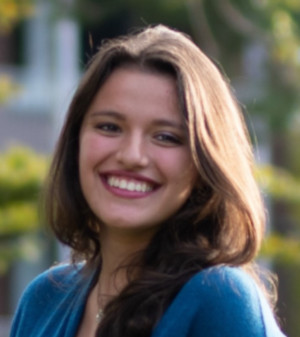Computational Bioscience Program
The Computational Bioscience PhD Program brings a pioneering approach to computation in the biomedical sciences to advance human health.
During an internship on campus in my undergraduate career, I was exposed to various professors in different departments. The CPBS program stood out for its diversity of research and the incredibly cooperative community. Being in Denver was a huge plus for me as well. - Sofia Colorado, PhD Student
Congratulations to Angela Sofia Burkhart Colorado
Congratulations to Angela Sofia Burkhart Colorado, who attended the
Microbiome Interactions in Health and Disease Conference (Wellcome Genome Campus UK, Feb 2024) to present on “
Differential effects of antiretroviral treatment on immunity and gut microbiome composition in people living with HIV in rural versus urban Zimbabwe ”
Congratulations to Connor Elkhill
My project focuses on developing AI models to improve surgical treatment for patients with craniosynostosis — a congenital condition that interrupts normal cranial growth and can have significant impact on brain development in very young children. I plan to use 3D photogrammetry, an emerging image modality in the clinic, to develop AI models that can predict the optimal surgical plan for these young patients. I am mentored by CPBS faculty member Antonio Porras, PhD who will train me in the design and implementation of novel deep learning models to accomplish this task. I am also mentored by Brooke French, MD, a pediatric plastic surgeon at Children’s Hospital Colorado who is an expert in the surgical care for children with craniosynostosis. Through this project I will learn how to develop meaningful AI models that will improve treatment for these young children and have a lasting impact in the field.
Congratulations to Nourah Salem
Congratulations to Nourah Salem who was accepted into a nationally competitive summer research internship at Microsoft. She spent three months in Redmond, WA in 2024 for the internship.
Read about how Nourah is bringing AI to scientific research in this featured news story .
Congratulations to Eric Prince!
Congratulations to Eric Prince, who was awarded an NIH F31 Fellowship on “Human-centered design of clinical AI to support the diagnosis of pediatric suprasellar tumors”.
"My project is designed to provide the advanced training necessary to perform team-based translational research regarding how explainable artificial intelligence software can be designed to improve clinical decision-making in cancer. With my CPBS PhD mentor, Dr. Carsten Görg, I am being trained on the practical design and implementation of human-centered computing experiments. With my clinical translational mentor, Dr. Todd Hankinson, I am participating in an immersive clinical experience where I am learning how clinicians utilize technology to make decisions regarding the care of pediatric brain tumor patients at Children’s Hospital Colorado. The TL1 TOTTS award supplements my CPBS PhD training program to reinforce my professional development and to facilitate my long-term career goal of developing software to improve cancer care."
